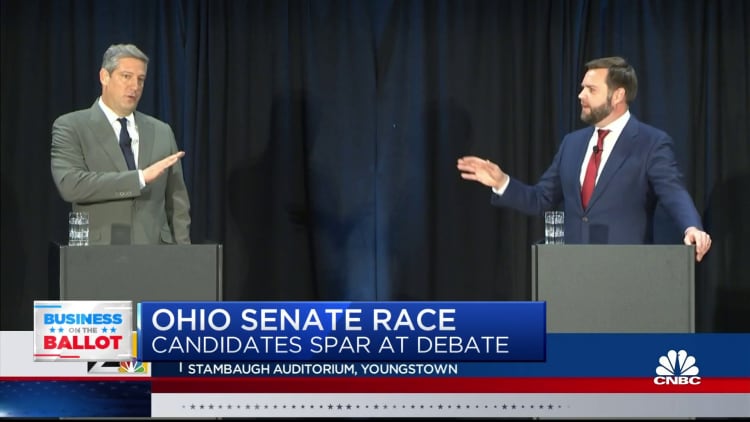BEIJING — China's latest leadership appointments point to greater emphasis on relations with the U.S.
Foreign Minister Wang Yi joined the new Politburo, the second-highest level of power, state media announced Sunday. That's despite expectations he might retire.
The changes showed that Yang Jiechi, a long-time diplomat closely involved with U.S.-China relations, did not stay on in the Politburo. Yang has headed the party's central committee foreign affairs office and was widely expected to retire.
Qin Gang, China's ambassador to the U.S., also made the list of new central committee members released Saturday.
Qin has actively reached out to American society and businesses, while Wang's comments during a recent trip to New York "indicates there is a desire to draw back from the intensely competitive relationship with the United States," said Dali Yang, political science professor at The University of Chicago.
"I think there may be a chance to certainly ease the tensions, hopefully, given the challenges China faces in keeping the Chinese economy growing," Yang said.
He pointed out that the 1970s, during the Cultural Revolution, was another tough period for China's economy, but it was during that time that Chinese leader Mao Zedong decided to reach out to the U.S.

The global pandemic that began in early 2020 has restricted international travel and China's tight Covid controls have made it difficult for diplomats to meet.
Chinese President Xi Jinping and U.S. President Joe Biden have yet to meet in person since Biden took office. The two men had previously met while Biden held other government roles.
Biden has said he would meet with Xi if the Chinese leader attended the G-20 summit in November.
When asked last week, China's Ministry of Foreign Affairs declined to confirm Xi's attendance, but said it would release an update in time.
Russia-Ukraine war adds to tensions
Qi Yu, party secretary of China's foreign ministry, was also named to the central committee, state media announced Saturday.
Tensions between the U.S. and China escalated during the Trump administration, which used tariffs and sanctions to pressure China over criticism of unfair business practices.
The Biden administration subsequently said the U.S. is in competition with China, and rolled out many new restrictions, including this month a near-ban on U.S. companies selling advanced chip tech to Chinese businesses.
The Biden administration has meanwhile strengthened its ties with allies, especially after Russia invaded Ukraine in February. China, which hosted Russian President Vladimir Putin earlier that month, has refused to call the attack an invasion.
However, there are some signs that China's relationship with Russia has cooled slightly.
Le Yucheng, a vice foreign minister who'd said in December 2021 that there is "no limit" to China's friendship with Russia, was removed from his post in June. He was instead made deputy head of the National Radio and Television Administration, with no explanation.
Taiwan
The democratically self-ruled island of Taiwan has become another point of tension between the U.S. and China in recent months, after U.S. House Speaker Nancy Pelosi's controversial visit in August.
Beijing considers Taiwan part of its territory, with no right to conduct foreign relations. The U.S. recognizes Beijing as the sole legal government of China, while maintaining unofficial relations with Taiwan.
Contrary to some expectations, Liu Jieyi, director of the State Council's Taiwan Affairs Office, did not get promoted this month as a potential successor to Yang Jiechi.
At the Communist Party of China's 20th National Congress, Xi gave the issue of Taiwan greater prominence in his opening speech than he had five years ago at the party's 19th National Congress.
He maintained Beijing's aim of "peaceful reunification" with the island, but spoke firmly against "interference by outside forces." State media said the amended constitution added a line on opposing those seeking "Taiwan independence."


